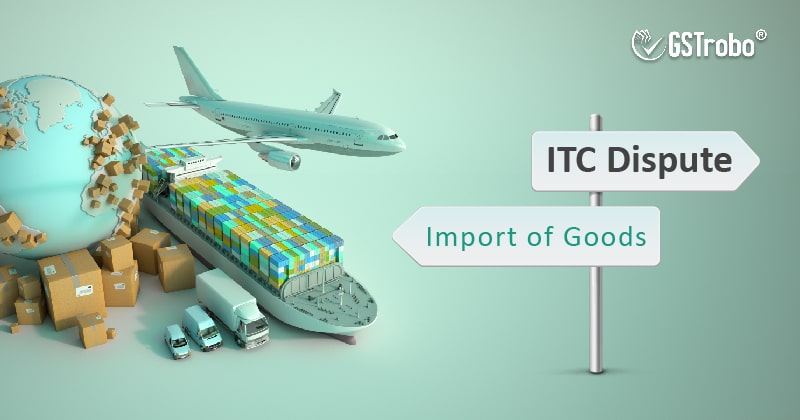ITC Disputes on Import of Goods
The Input Tax Credit (ITC) is essential to modern taxation systems because it allows businesses to offset the tax paid on inputs against the tax liability on outputs. However, when it comes to importing goods, applying GST input tax credit becomes more complex due to the involvement of cross-border transactions, customs duties, and international trade regulations.

Let’s understand the complexities of GST input tax credit disputes in importing goods, supplemented by relevant case laws that shed light on the challenges faced by businesses and tax authorities.
ITC in import of goods explained:
When a company imports goods, it is frequently subject to a variety of taxes and duties, such as custom duties, import tariffs, and VAT or GST, depending on the jurisdiction. ITC can be claimed on the taxes paid during the import process, helping businesses recover a significant portion of the tax paid. However, the application of GST input tax credit in the context of imports can lead to disputes due to the following reasons:
Eligibility Criteria in ITC Disputes:
Tax laws often impose conditions for input tax claim, such as the requirement that the imported goods must be used for business purposes. Determining whether the imported goods meet such criteria can be a point of contention.
Reversal Mechanisms for ITC:
Some jurisdictions require businesses to reverse the input tax claimed if the imported goods are not used for business purposes within a specified period. Disputes may arise regarding the calculation of this reversal or the criteria for triggering it.
Documentation Required in ITC Disputes:
Accurate documentation is crucial to input tax claim. In the case of imports, businesses must provide evidence of the taxes paid, customs declarations, and other relevant documents. Discrepancies or incomplete documentation can lead to disputes.
Case Laws Illustrating ITC Disputes in Importing Goods
XYZ Corp. vs Tax Authority: In this case, XYZ Corp. claimed GST ITC on customs duties paid during the importation of machinery. The tax authority challenged the claim, claiming that the machinery was not used solely for business purposes. The court ruled in favor of XYZ Corp., stating that the machinery was indeed used for business operations and that the input tax claim was valid. This case demonstrated the significance of establishing the business use of imported goods.
ABC Importers vs. Customs Department: ABC Importers claimed GST ITC on import duties paid but failed to provide complete documentation, including customs declarations. The customs department rejected the claim, citing inadequate proof. The court upheld the decision, emphasizing the significance of proper documentation for GST input tax credit claims related to imported goods.
DEF Manufacturing vs Tax Authority: DEF Manufacturing claimed GST ITC on import taxes, but the tax authority raised concerns about the timing of the GST ITC claim, as the reverse mechanism had already been triggered due to the sale of a portion of the imported goods. The court ruled in favour of the tax authority, highlighting the need to adhere to the timelines for GST input tax credit claims and reversals.
Importing goods adds additional complexity to the already intricate structure of the Input Tax Credit. GST Disputes can arise due to eligibility criteria, reversal mechanisms, and documentation requirements. Businesses must diligently establish the purpose of imported goods, maintain accurate documentation, and adhere to statutory timelines to mitigate the risk of ITC disputes.
Conclusion
As demonstrated by the case laws discussed, courts often emphasize the importance of fulfilling these requirements to ensure a smooth input tax claim process for imported goods. Staying well-informed about tax regulations and seeking expert advice can significantly assist businesses in navigating these challenges and ensuring compliance with GST ITC rules.
